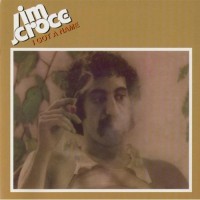| I Got a Name | ||||
|---|---|---|---|---|
 | ||||
| Studio album by | ||||
| Released | December 1973 | |||
| Recorded | 1973 | |||
| Studio | Hit Factory, New York City | |||
| Genre | Folk rock | |||
| Length | 30:57 | |||
| Label | ABC (USA) Vertigo (UK) | |||
| Producer | Terry Cashman, Tommy West | |||
| Jim Croce chronology | ||||
| ||||
| Singles from I Got a Name | ||||
| ||||
| Review scores | |
|---|---|
| Source | Rating |
| AllMusic | |
| Christgau's Record Guide | C+ [2] |
| Rolling Stone | (favorable) [3] |
I Got a Name is the fifth and final studio album and first posthumous release by American singer-songwriter Jim Croce, released in December 1973. It features the ballad "I'll Have to Say I Love You in a Song", which reached number 9 on the US singles chart, and the ballad "Salon and Saloon", the last song Croce recorded in his lifetime. The song, which is noted for its sparse piano-only vocal backing, was written by his guitarist and friend Maury Muehleisen and was included on the album as a gift to the writer.
Contents
This would be Croce's final album, as he died in a plane crash on September 20, 1973.
"I Got a Name" was used as the theme for the films The Last American Hero and Invincible . It was a posthumous hit for Croce, reaching number 10 on the US singles chart.
The album reached number 2 on the US charts behind his earlier album You Don't Mess Around with Jim in first place. [4] [5]